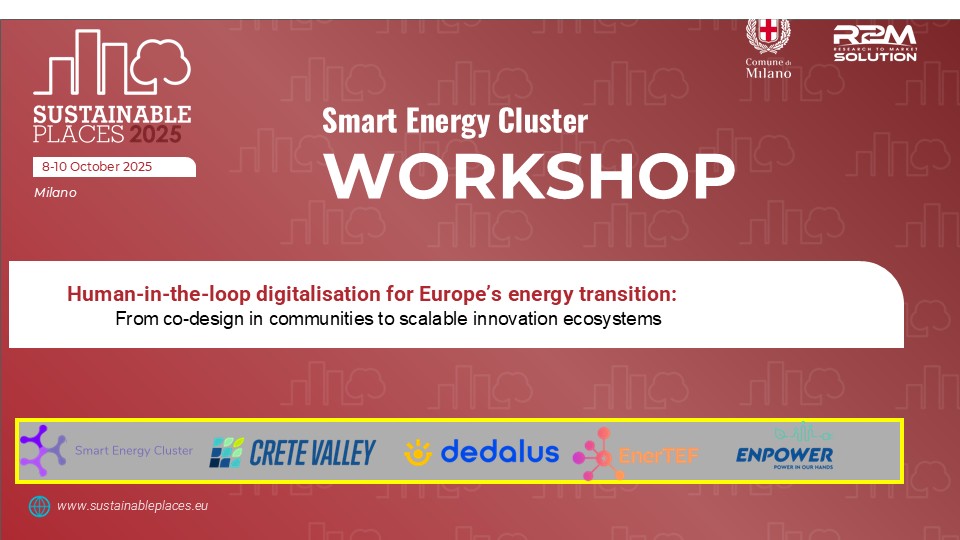Human-in-the-loop digitalisation for Europe’s energy transition: From co-design in communities to scalable innovation ecosystems

Europe’s energy transition is accelerating, driven by renewable integration, sector coupling, and digitalisation. Emerging tools such as artificial intelligence (AI), digital twins, blockchain, and data platforms offer great potential to optimise energy management and enable cross-carrier flexibility. Yet top-down, centralised platforms often fall short: they face challenges of social acceptance, legitimacy, and trust. Without active citizen engagement and transparency, digital energy services risk fragmentation. Human-in-the-loop approaches are therefore essential to ensure that digitalisation is not only efficient but also inclusive, resilient, and socially grounded.
This workshop explored how human-centred digitalisation can combine technological innovation with social participation to accelerate Europe’s clean energy transition by:
Showcasing real-world experiences from four pioneering projects that integrated co-creation, consumer-centric flexibility, and market validation.
Connecting local experimentation with European-level policy and market scaling. Four initiatives from the Smart Energy Cluster illustrated different facets of this approach.
Specifically:
Crete Valley developed Renewable Energy Valleys where multi-carrier integration — solar PV, hydrogen, biogas, and district heating — was designed with communities, ensuring that AI, digital twins, and blockchain delivered tangible regional value.
DEDALUS advanced a demand-response ecosystem that blended digital technologies with behavioural and social science insights to enhance trust and acceptance at household and district levels.
EnerTEF provided a federated testing facility linking SMEs and startups with industry leaders, validating AI-enabled services to move from pilots to large-scale deployment.
ENPOWER equipped citizens with digital services for engagement, nudging, community energy planning, and flexibility marketplaces, turning passive consumers into active energy citizens. Together, these projects showed how human-in-the-loop approaches aligned technical excellence with social legitimacy and built scalable innovation ecosystems.
The roundtable discussion highlighted human-in-the-loop digitalisation as a multi-level process by:
Empowering citizens and consumers through co-design and participatory governance.
Ensuring interoperability and flexibility across carriers and sectors.
Building robust innovation ecosystems connecting SMEs, startups, communities, and industry players.
The session was interactive, enabling participants to test methodologies, tools, and strategies that combined technical excellence with social legitimacy, and to explore how local pilots could scale into policy-relevant and market-ready solutions.
